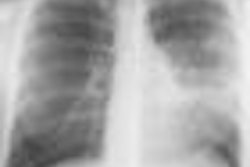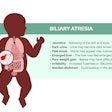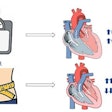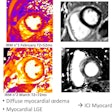
NEW YORK (Reuters Health), Oct 22 - Breast cancer patients who use menopausal hormone replacement therapy (HRT) are more likely to have lower-grade tumors and better survival than nonusers, according to results of a Swedish cohort study reported in the current issue of Breast Cancer Research.
Dr. Lena Rosenberg of the Karolinska Institute in Stockholm assessed a cohort of 2,660 postmenopausal women ages 50-74 years, diagnosed with invasive breast cancer between 1993 and 1995, and followed them through the end of 2003. Median follow-up was nine years and three months.
Rosenberg's team assessed the influence of menopausal HRT before diagnosis on tumor characteristics and breast cancer-specific survival.
Women who used HRT before diagnosis were classified as users of estrogen-progestin therapy or estrogen alone. Women were also grouped according to current or past use of HRT, and those who used HRT for less than five years or used HRT for five or more years.
"The favorable survival among current users of hormone therapy was only partly explained by differences in available tumor characteristics and mammographic surveillance," the Swedish team says.
"We found that use of menopausal hormone therapy at the time of breast cancer diagnosis was associated with lower tumor grade, lobular or other nonductal histology, positive receptor status, and with a favorable breast cancer survival," Rosenberg and colleagues write.
"Mammographic surveillance did not explain our results," they say. "As tumor grade and receptor status seem to be relatively stable characteristics that are not sensitive to lead time bias, we believe that menopausal hormone therapy induces tumors of certain phenotypes."
"The favorable breast cancer survival among current menopausal HRT users was more pronounced in the first five years after diagnosis, than thereafter. This is in line with the finding that more aggressive breast cancer has a peak mortality after around two years, while less aggressive breast cancer has a low but constant mortality for more than ten years after diagnosis. Thus, if our follow-up had lasted longer, the expected survival benefit due to menopausal hormone therapy would have diminished," the Swedish team says.
"As menopausal HRT increases the risk of breast cancer after only a few years, and this risk disappears shortly after ceasing, menopausal HRT probably acts as a late stage promoter of breast cancer. The epidemiological findings of an association between current menopausal HRT use and low-grade, receptor-positive tumors indicate that menopausal HRT may promote preclinical tumors with less malignant tumor characteristics."
"Consequently, we think that current menopausal HRT affects survival through biological effects on the tumor ... The highest risks of getting breast cancer are found among long-term, current, or estrogen-progestin users."
"That we found a better survival in breast cancer among women currently using HRT is not contradicting the general recommendations to use HRT only if you have symptoms, and for the shortest possible time period," Rosenberg pointed out in an interview with Reuters Health. "Even if we indicate that the prognosis might be better, getting diagnosed with breast cancer is really worth avoiding."
By Martha Kerr
Breast Cancer Research 2008,10:1-11.
Last Updated: 2008-10-21 15:02:34 -0400 (Reuters Health)
Related Reading
Combination HRT linked to lower-risk breast cancers, May 10, 2007
Copyright © 2008 Reuters Limited. All rights reserved. Republication or redistribution of Reuters content, including by framing or similar means, is expressly prohibited without the prior written consent of Reuters. Reuters shall not be liable for any errors or delays in the content, or for any actions taken in reliance thereon. Reuters and the Reuters sphere logo are registered trademarks and trademarks of the Reuters group of companies around the world.

















